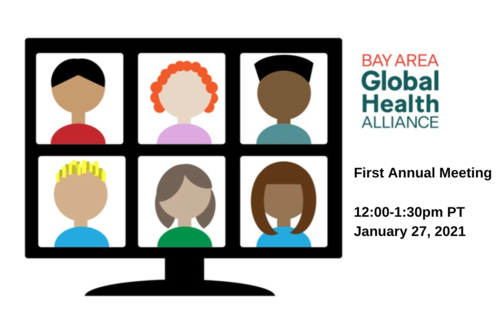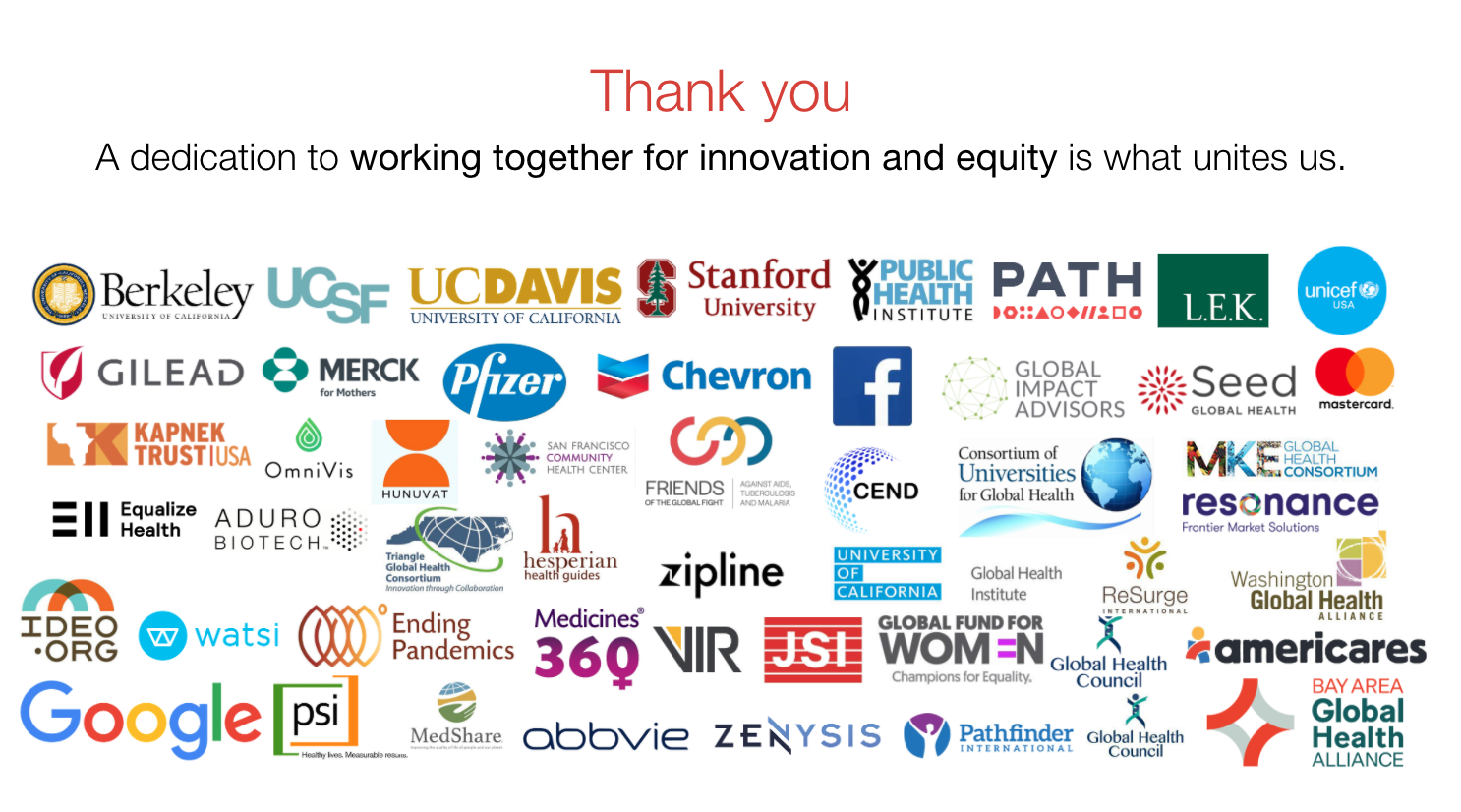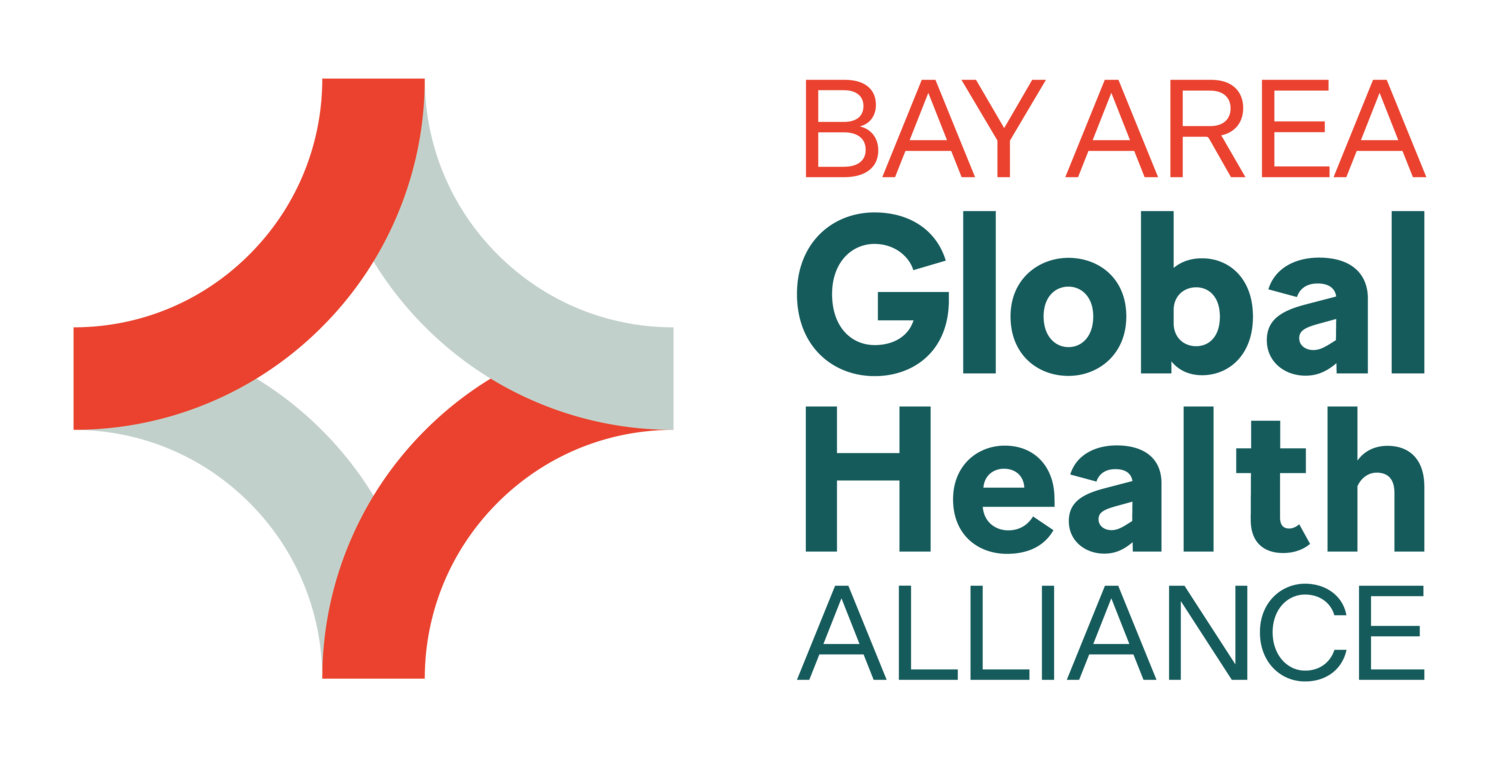
- This event has passed.
Fireside Chat with Paulin Basinga, Gates Foundation Director for Health in Africa | January 27, 2021
January 27, 2021 @ 12:00 pm - 1:30 pm

Nearly 100 attendees from nearly 50 member organizations convened online on January 27 for the Bay Area Global Health Alliance’s first-ever Annual Meeting.

The Bill and Melinda Gates Foundation’s Paulin Basinga, Director, Health, Africa, was the keynote speaker. He spoke in a fireside chat on “Solidarity in Vaccine Access” with Alliance board member Stefano Bertozzi, Dean Emeritus and Professor of Health Policy & Management, UC Berkeley School of Public Health.
Basinga has led public health efforts in Rwanda and Nigeria. He said that the continent’s response to the current pandemic has been informed by the public health infrastructure already in place across the African Union to combat AIDS, Ebola, polio and other infectious diseases.
“People listen more to the government,” in Africa, he said, adding, “The CDC has been playing a critical role there. Working with Gavi, they’ve created what they’re calling the Africa Vaccine Access Initiative.” Equally important are local efforts because “in Africa, people really trust their community leaders, they trust their religious leaders. There has a huge impact in terms of people trusting the process,” Basinga said.
“This pandemic has been another proof point of the impact of inequity. We need the scientific successes of 2020 to reach as many people as possible … In 2020, we saw unbelievable scientific progress in our fight against COVID-19. In 2021, we must come together to make sure these successes reach the maximum number of people,” remarked Basinga.
Alliance members Pfizer, Facebook, PSI and Google, as well as UC Berkeley historian Elena Conis gave short lightning talks on COVID-19 response, vaccine confidence and opportunities for collaboration. Key highlights:
- Pfizer’s Darren Back, Vice President for Global Health Investments, and Executive Director, The Pfizer Foundation, discussed Pfizer’s goals in his outline of the company’s contributions to the COVID-19 response. In addition to the company’s vaccine development, the foundation has prioritized providing targeted emergency relief during the pandemic through a $40 million commitment to US-based community organizations and international NGOs that are providing essential support for the underserved.
- KX Jin, Head of Health for Facebook, shared Facebook’s two-pronged COVID response: helping public health organizations and governments with their outreach efforts and using data and rapid impact measurement to change attitudes and behaviors at scale. Jin showcased a CDC I Ad Council campaign video featuring influencers modeling masking behavior. That single campaign resulted in a ~68% increase in respondents who stressed the importance of wearing a mask.
- Malcolm Quigley and Brandon Soloski, of PSI, discussed how PSI is “harnessing the power of partnerships to advance competence and social behavior change” to address the COVID crisis around the globe. In partnership with Facebook’s platform, PSI has reached 33 million people with messaging about virus prevention and vaccine acceptance.
- Tracing the history of epidemics and eradication efforts, historian Elena Conis stated, “Opposition to vaccination is as old as vaccination itself.” Three primary concerns have fueled vaccine hesitancy since the first smallpox vaccine late in the 18th century: reluctance to have government mandates (and its concomitant potential for abuse of power), fear of adverse health outcomes and a belief that it’s interfering with God’s will. Unfortunately, some of those concerns have been realized. Today, the US legacy of inequity in vaccination administration is being overcome by federal leadership and support, federal-local cooperation, free vaccines and creative local ways of making vaccines available and accessible to all.
- Google’s Hema Budaraju, Director, Product Management, talked about how Google Maps has evolved nimbly to meet the dynamic and extraordinary changes of the past year, with the goal of “sharing the most authoritative info in the most equitable fashion.” Budaraju outlined several of the key feature changes in Maps, including an added COVID case layer; COVID Alerts featuring the latest news and mask mandates; the addition of Live Busyness and Transit Crowdedness information (allowing consumers to assess their ability to physically distance); and helping local businesses share updates as they adapt to changing situations. COVID vaccine locations on maps are being rolled out now.
In reflecting on the Alliance inaugural year coinciding with the global pandemic, Executive Director Sara Anderson said that “one silver lining was increased worldwide awareness of the critical need for global health security, public health and for creating equitable access to care.”
“Community and collaboration also took on new importance. Many realized that we couldn’t go alone and that cross-sector collaboration and innovation were absolutely critical for our recovery—and that recognition led to a 60% growth in the Alliance,” continued Anderson.
The Alliance now has 49 member organizations from the academic, tech, nonprofit, and private sectors. Moving forward in 2021, the Alliance will continue with responsive programming, curated communications, convenings for shared learning, and connections and partnerships to develop future collaborations.
“The Bay Area has long been at the forefront of health innovations,” said Anderson. “We are here to help shine a light on our region’s and our members’ incredible commitment to health, build community and engage the tech sector to advance global health equity.

Details
- Date:
- January 27, 2021
- Time:
-
12:00 pm - 1:30 pm
- Event Categories:
- Alliance Events, Virtual
- Event Tags:
- Vaccine Access
